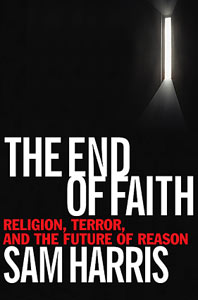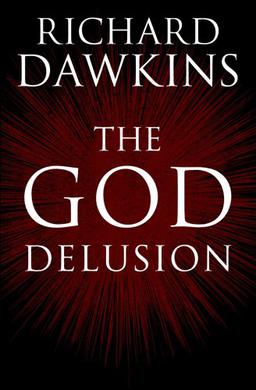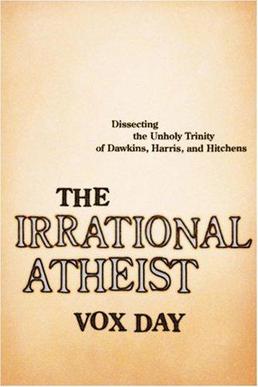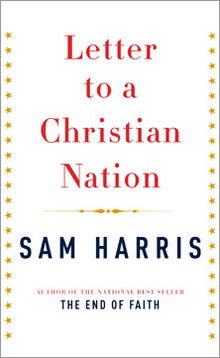
Richard Dawkins is a British evolutionary biologist and author. He is an emeritus fellow of New College, Oxford, and was Professor for Public Understanding of Science in the University of Oxford from 1995 to 2008. His 1976 book The Selfish Gene popularised the gene-centred view of evolution, as well as coining the term meme. Dawkins has won several academic and writing awards.

Michael Ruse is a British-born Canadian philosopher of science who specializes in the philosophy of biology and works on the relationship between science and religion, the creation–evolution controversy, and the demarcation problem within science. Ruse currently teaches at Florida State University.

Alister Edgar McGrath is a Northern Irish theologian, Anglican priest, intellectual historian, scientist, Christian apologist, and public intellectual. He currently holds the Andreas Idreos Professorship in Science and Religion in the Faculty of Theology and Religion, and is a fellow of Harris Manchester College at the University of Oxford, and is Professor of Divinity at Gresham College. He was previously Professor of Theology, Ministry, and Education at King's College London and Head of the Centre for Theology, Religion and Culture, Professor of Historical Theology at the University of Oxford, and was principal of Wycliffe Hall, Oxford, until 2005.

The God Who Wasn't There is a 2005 independent documentary written and directed by Brian Flemming. The documentary questions the existence of Jesus, examining evidence that supports the Christ myth theory against the existence of a historical Jesus, as well as other aspects of Christianity.

Samuel Benjamin Harris is an American philosopher, neuroscientist, author, and podcast host. His work touches on a range of topics, including rationality, religion, ethics, free will, neuroscience, meditation, psychedelics, philosophy of mind, politics, terrorism, and artificial intelligence. Harris came to prominence for his criticism of religion, and is known as one of the "Four Horsemen" of New Atheism, along with Richard Dawkins, Christopher Hitchens, and Daniel Dennett.
Antireligion is opposition to religion or traditional religious beliefs and practices. It involves opposition to organized religion, religious practices or religious institutions. The term antireligion has also been used to describe opposition to specific forms of supernatural worship or practice, whether organized or not. The Soviet Union adopted the political ideology of Marxism–Leninism and by extension the policy of state atheism which opposed the growth of religions.

The Root of All Evil?, later retitled The God Delusion, is a television documentary written and presented by Richard Dawkins in which he argues that humanity would be better off without religion or belief in God.
Criticism of atheism is criticism of the concepts, validity, or impact of atheism, including associated political and social implications. Criticisms include positions based on the history of science, philosophical and logical criticisms, findings in both the natural and social sciences, theistic apologetic arguments, arguments pertaining to ethics and morality, the effects of atheism on the individual, or the assumptions that underpin atheism.

The End of Faith: Religion, Terror, and the Future of Reason is a 2004 book by Sam Harris, concerning organized religion, the clash between religious faith and rational thought, and the problem of intolerance that correlates with religious fundamentalism.

The God Delusion is a 2006 book by British evolutionary biologist and ethologist Richard Dawkins. In The God Delusion, Dawkins contends that a supernatural creator, God, almost certainly does not exist, and that belief in a personal god qualifies as a delusion, which he defines as a persistent false belief held in the face of strong contradictory evidence. He is sympathetic to Robert Pirsig's statement in Lila (1991) that "when one person suffers from a delusion it is called insanity. When many people suffer from a delusion it is called religion." In the book, Dawkins explores the relationship between religion and morality, providing examples that discuss the possibility of morality existing independently of religion and suggesting alternative explanations for the origins of both religion and morality.

The Dawkins Delusion? Atheist Fundamentalism and the Denial of the Divine is a book by the theologian Alister McGrath and the psychologist Joanna Collicutt McGrath. It is written from a Christian perspective as a response to arguments put forth in The God Delusion by Richard Dawkins. The work was published in the United Kingdom in February 2007 by the Society for Promoting Christian Knowledge and in the United States in July 2007.

Darwin's Angel is a book published in response to Richard Dawkins' The God Delusion. It was written by John Cornwell and subtitled An Angelic Riposte to The God Delusion.

The Portable Atheist: Essential Readings for the Nonbeliever (2007) is an anthology of atheist and agnostic thought edited by Christopher Hitchens.
Atheism, in the broadest sense, is an absence of belief in the existence of deities. Less broadly, atheism is a rejection of the belief that any deities exist. In an even narrower sense, atheism is specifically the position that there are no deities. Atheism is contrasted with theism, which in its most general form is the belief that at least one deity exists.
Secular morality is the aspect of philosophy that deals with morality outside of religious traditions. Modern examples include humanism, freethinking, and most versions of consequentialism. Additional philosophies with ancient roots include those such as skepticism and virtue ethics. Greg M. Epstein also states that, "much of ancient Far Eastern thought is deeply concerned with human goodness without placing much if any stock in the importance of gods or spirits." An example is the Kural text of Valluvar, an ancient Indian theistic poet-philosopher whose work remains secular and non-denominational. Other philosophers have proposed various ideas about how to determine right and wrong actions. An example is Immanuel Kant's categorical imperative.

Questions of Truth is a book by John Polkinghorne and Nicholas Beale which offers their responses to 51 questions about science and religion. The foreword is contributed by Antony Hewish.
The term New Atheism describes the positions of some atheist academics, writers, scientists, and philosophers of the 20th and 21st centuries. New Atheism advocates the view that superstition, religion, and irrationalism should not simply be tolerated. Instead, they advocate the antitheist view that the various forms of theism should be criticised, countered, examined, and challenged by rational argument, especially when they exert strong influence on the broader society, such as in government, education, and politics. Major figures of New Atheism include Richard Dawkins, Sam Harris, Christopher Hitchens and Daniel Dennett, collectively referred to as the "four horsemen" of the movement, as well as Ayaan Hirsi Ali until her conversion to Christianity in 2023.

The Irrational Atheist: Dissecting the Unholy Trinity of Dawkins, Harris, and Hitchens is a 2008 non-fiction book by Vox Day, an American far-right activist, writer, musician, publisher, and video game designer. Day describes himself as a Christian nationalist. The Irrational Atheist was one of a number of books including God's Undertaker, and The Devil's Delusion, published in response to Dawkins and other New Atheists.
The secular movement refers to a social and political trend in the United States, beginning in the early years of the 20th century, with the founding of the American Association for the Advancement of Atheism in 1925 and the American Humanist Association in 1941, in which atheists, agnostics, secular humanists, freethinkers, and other nonreligious and nontheistic Americans have grown in both numbers and visibility. There has been a sharp increase in the number of Americans who identify as religiously unaffiliated, from under 10 percent in the 1990s to 20 percent in 2013. The trend is especially pronounced among young people, with about one in three Americans younger than 30 identifying as religiously unaffiliated, a figure that has nearly tripled since the 1990s.
This is a bibliography of literature treating the topic of criticism of Christianity, sorted by source publication and the author's last name.













